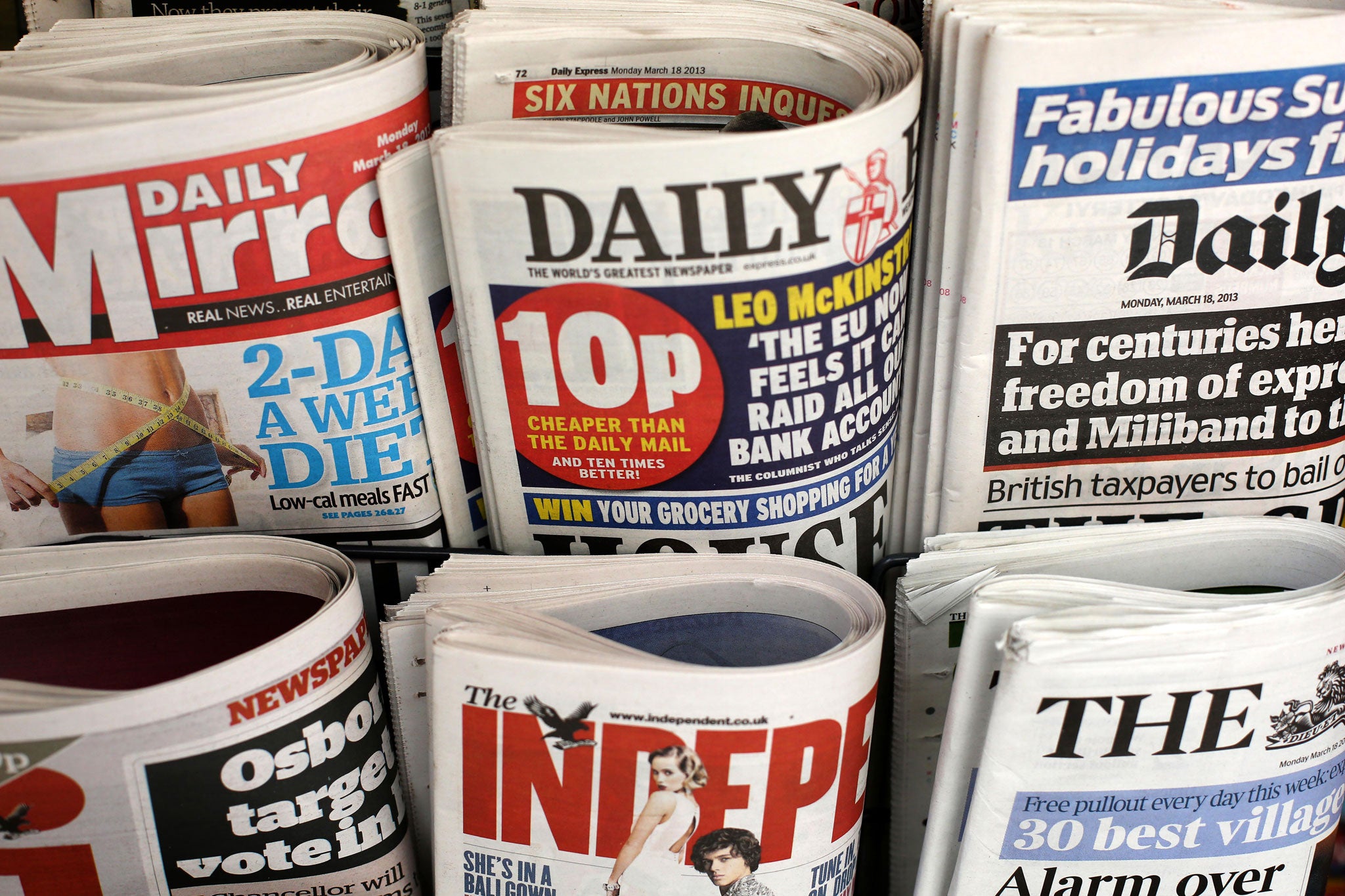Privy Council 'set to reject' newspaper industry's proposals for press self-regulation
MPs are hopeful of adapting existing Royal Charter to make it more acceptable to news organisations

Your support helps us to tell the story
From reproductive rights to climate change to Big Tech, The Independent is on the ground when the story is developing. Whether it's investigating the financials of Elon Musk's pro-Trump PAC or producing our latest documentary, 'The A Word', which shines a light on the American women fighting for reproductive rights, we know how important it is to parse out the facts from the messaging.
At such a critical moment in US history, we need reporters on the ground. Your donation allows us to keep sending journalists to speak to both sides of the story.
The Independent is trusted by Americans across the entire political spectrum. And unlike many other quality news outlets, we choose not to lock Americans out of our reporting and analysis with paywalls. We believe quality journalism should be available to everyone, paid for by those who can afford it.
Your support makes all the difference.The Privy Council is understood to be set to reject a press Royal Charter for future regulation of the newspaper industry – clearing the way for a tougher regulatory model already approved by parliament.
A sub-committee of the Privy Council made up of Conservative and Liberal Democrat MPs will meet on Wednesday and is poised to throw out the industry’s proposals. But MPs are hopeful of amending a previous Royal Charter, already approved by all three parliamentary parties in March, in order to make that system more acceptable to news organisations.
News groups – ranging from the publishers of the Daily Mail and The Sun to the Newspaper Society, which represents the local and regional press, have been hostile to the parliament-approved charter, arguing that it represents unacceptable interference by politicians and compromises freedom of speech.
Press reform groups argue that newspapers will ultimately be attracted to joining the parliament-approved system because it will offer legal incentives for participation. Media reform organisations, including Hugh Grant’s pressure group Hacked Off, have been saying for weeks that they are confident that the sub-committee would throw out the PressBof charter.
But the Privy Council’s rejection of the charter drawn up by the Press Standards Boards of Finance (PressBof), will raise the possibility that large newspaper groups will go forward and establish a separate regulator of their own.
The resolve of MPs to take a tougher line with newspapers is likely to have been strengthened in the past ten days following a row between the Daily Mail and the Labour leader Ed Miliband over the paper’s coverage of his father, Ralph, who was described in a headline as “The Man Who Hated Britain”. Associated Newspapers, publishers of the Daily Mail, have been among the most vociferous opponents of the parliament-approved charter.
Join our commenting forum
Join thought-provoking conversations, follow other Independent readers and see their replies
Comments